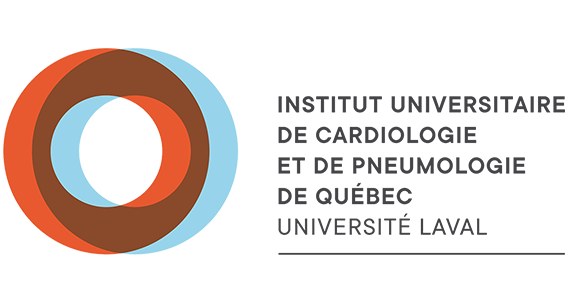Research Chairs
“Research Chairs are awarded to outstanding researchers acknowledged by their peers as world leaders in their respective fields. Chairholders advance the frontiers of knowledge in their fields, not only through their own work, but also by teaching and supervising students and coordinating the work of other researchers.” (Source: Canada Research Chairs).
Seventeen researchers hold research chairs.
- Dr. Olivier F. Bertrand: International Chair in Interventional Cardiology and the Transradial Approach
- Dr. Sébastien Bonnet: Canadian Research Chair in Vascular Remodeling Diseases
- Dr. Yohan Bossé: Canadian Research Chair in Genomics of Heart and Lung Diseases
- Dr. Louis-Philippe Boulet: Knowledge Transfer, Training and Prevention Chair on Respiratory and Cardiovascular Health
- Dr. Jean-Pierre Després: International Research Chair on Cardiometabolic Risk
- Dr. Vincenzo Di Marzo: Canada Research Excellence Chair in the Microbiome-Endocannabinoidome Axis in Metabolic Health
- Dr. Eric Larose: Chair of Research and Innovation in Cardiovascular Imaging
- Dr. François Maltais: GSK–CIHR Research Chair on Chronic Inflammatory Diseases of the Airways
- Dr. André Marette: Pfizer Canada – CIHR Chair in the Pathogenesis of Insulin Resistance and Cardiovascular Diseases
- Dr. Patrick Mathieu: FRQS Chair on the Pathobiology of Calcific Aortic Valve Disease
- Dr. Philippe Pibarot: Canada Research Chair in Valvular Heart Diseases
- Dr. Denis Richard: Research Chair in Obesity
- Dr. Josep Rodés-Cabau: Research Chair on the “Fondation Jacques Larivière” for the development of structural heart interventions
- Dr. Cristoforo Silvestri: Chaire de recherche en partenariat sur le système endocannabinoïde en santé cardiométabolique
- Drs. André Tchernof and Laurent Biertho: Chair in Bariatric and Metabolic Surgery
- Dr. Angelo Tremblay: Canada Research Chair in Physical Activity, Nutrition and Energy Balance
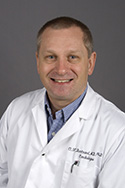 Dr. Olivier F. Bertrand, M.D.
Dr. Olivier F. Bertrand, M.D.
Chairholder of the International Chair on Interventional Cardiology and the Transradial Approach
One of the key objectives of this Chair is to foster the development of an international network of experts for sharing information and learning on the transradial approach. The Chair also aims to give Québec researchers an opportunity to play a leading role in the creation, recognition and implementation of standards on for the transradial approach. Currently, atherosclerotic heart disease is the most common form of heart disease worldwide and is the leading cause of mortality, accounting for some 7.3 million deaths each year. Traditionally, the femoral artery has been the access point for angiograms and angioplasties. However, the radial artery (i.e., the transradial approach) provides an alternate alternative access point that offers a host of benefits. In addition to greater patient comfort, the transradial approach is associated with a lower risk of vascular complications and bleeding and with a reduction in the duration and costs of hospitalization. Recent data suggests that the transradial approach could reduce mortality in patients with acute myocardial infarction compared with the standard femoral approach. And yet, the transradial approach is used in only 20% of cardiac procedures worldwide.
 Dr. Sébastien Bonnet, Ph.D.
Dr. Sébastien Bonnet, Ph.D.
Chairholder of the Canadian Research Chair in Vascular Remodeling Diseases
Vascular remodeling diseases are the number one killer and cause of hospitalization in Canada. Current treatments only limit or slow progression, rather than cure the disease. Pulmonary arterial hypertension (PAH) is a disease of the vessels carrying blood to the lungs and is characterized by narrowing of the pulmonary arteries, which impairs oxygenation and causes fatal heart failure. PAH can have many different causes, such as vascular smooth muscle cell multiplication, resistance to programmed cell death (apoptosis), endothelial dysfunction, and inflammation, all of which make the blood vessel cells immortal so that they build up and restrict blood circulation.
The Pulmonary Hypertension Research Group recently created by Dr. Bonnet and Dr. Provencher and backed by Dr. Bonnet’s Canada Research Chair uses a multidisciplinary and translational approach (from genetics to the population) to study the molecular and cellular mechanisms involved in vascular (PAH and coronary) and bronchial remodeling. This approach has led to the discovery of new biomarkers to improve the identification and management of individuals with vascular diseases such as PAH, as well as new therapeutic targets such as Pim-1, miR-204 and PARP-1. By pairing basic and preclinical research with clinical research, we have brought our laboratory findings to the patient’s bedside, which will certainly accelerate the discovery of new therapies.
 Dr. Yohan Bossé, Ph.D.
Dr. Yohan Bossé, Ph.D.
Chairholder of the Canadian Research Chair in Genomics of Heart and Lung Diseases
Dr. Bossé and his team use modern genomic approaches to understand the molecular basis of heart and lung diseases. They collaborate with colleagues to set up and manage collections of samples (DNA, heart and lung tissues) as broad and diverse as possible to meet requirements of genomic research. With these resources, they develop projects to fulfill needs in the diagnosis and treatment of diseases and ensure the implementation of new genomic knowledges in clinical settings. The main objective of his laboratory is to carry out genomic research in heart and respiratory diseases and to convert scientific discoveries into new clinical applications to customize the care and treatment of patients affected.
 Dr. Louis Philippe Boulet, M.D.
Dr. Louis Philippe Boulet, M.D.
Chairholder of the Knowledge Transfer, Training and Prevention Chair on Respiratory and Cardiovascular Health
Cardiopulmonary diseases affect a very large proportion of the population. The objective of this Chair is to reduce the human and socioeconomic burdens of these diseases by assessing new knowledge transfer methods for the benefit of health professionals, patients and other stakeholders. Supported by Dr. Paul Poirier and Dr. Sébastien Bergeron for the cardiovascular component, and aided by numerous local, national and international partnerships, Dr. Boulet has forged a research program focusing on the development of educational materials, tools for medical practitioners and educators, along with a research and communications program on cardiopulmonary disease risk factors.
 Dr. Jean-Pierre Després, Ph.D.
Dr. Jean-Pierre Després, Ph.D.
Chairholder of the International Chair on Cardiometabolic Risk
Cardiovascular diseases remain an important worldwide public health concern. Abdominal obesity is now recognized as the most common cause of many metabolic complications that increase cardiovascular disease risk. The objective of the International Chair on Cardiometabolic Risk—the first Chair of its kind—is to promote research and education on the prevention, evaluation, and management of patients with abdominal obesity and associated metabolic syndrome components.
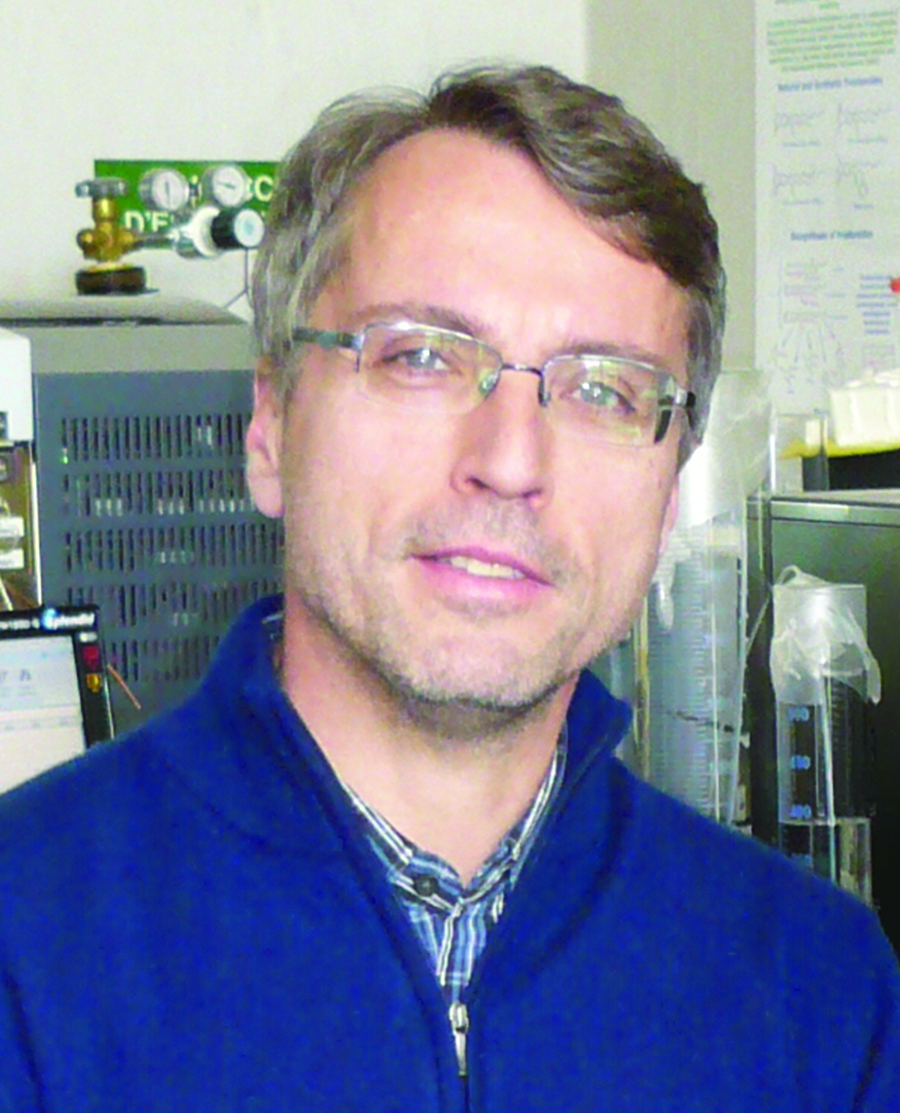 Dr. Vincenzo Di Marzo, Ph.D.
Dr. Vincenzo Di Marzo, Ph.D.
Chairholder of the Canada Research Excellence Chair in the Microbiome-Endocannabinoidome Axis in Metabolic Health
This chair, the only one of its kind in the world, will integrate the study of the microbiota – henceforth recognized as the second human brain – into conventional approaches in order to shed light on the mechanisms modulating the metabolic health regarding eating habits. Thus, it will help to generate new therapeutic approaches as well as to design innovative nutritional and medical strategies to maintain health and to prevent obesity-related metabolic complications. This multifactorial disease is considered one of the most important 21st century societal challenges.
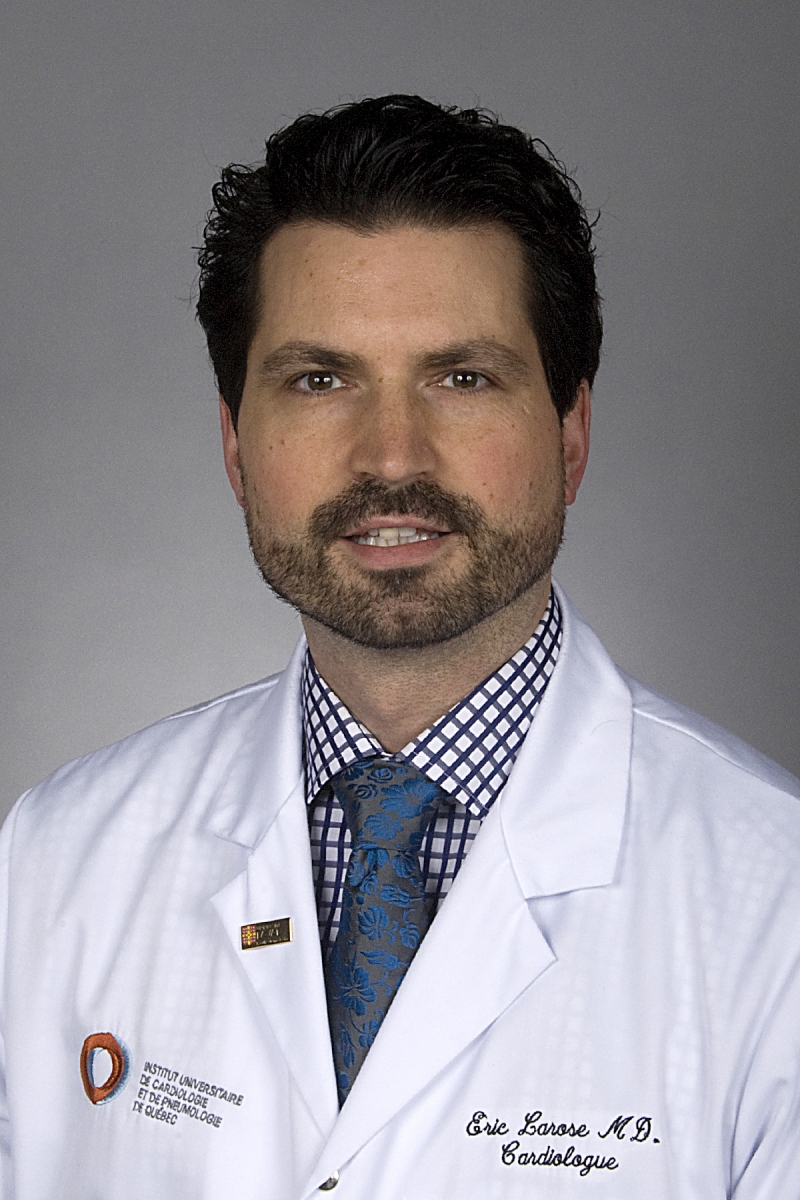 Dr. Eric Larose. D.V.M., M.D.
Dr. Eric Larose. D.V.M., M.D.
Chairholder of the Chair of Research and Innovation in Cardiovascular Imaging
The atherosclerosis, or the clogging of arteries by the buildup of fatty matter, is the leading cause of cardiovascular diseases as well as of mortality in both developed and developing countries. It affects at-risk populations as well as those considered healthy and is a major public health issue. The work of this chair will help to advance knowledge on the development and the progression of atherosclerosis using advanced imaging, in order to design effective prevention strategies applicable to the entire population. The Chair will draw upon innovative imaging techniques, such as magnetic resonance imaging and computed tomography, in order to better observe, identify, quantify and control the risk related to atherosclerosis while the individual is alive rather than during an autopsy.
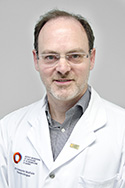 Dr. François Maltais, M.D.
Dr. François Maltais, M.D.
Chairholder of the GSK–CIHR Research Chair on Chronic Inflammatory Diseases of the Airways
Assistant Director of Respirology Research
Director of the Respiratory Health Research Group
Chronic obstructive pulmonary disease (COPD) is a leading cause of mortality and morbidity. COPD is the fourth leading cause of death worldwide and is only expected to increase in coming years. No longer viewed as a disease limited to the lungs, COPD is now recognized as a disease involving multiple organ systems. Dr. Maltais’ research focuses on the impact of skeletal muscle dysfunction in COPD patients along with the effects of muscle mass loss and muscle wasting on morbidity and mortality. The objective of the Chair is to better understand the mechanisms involved in COPD-related skeletal muscle dysfunction in order to enhance treatment, quality of life and the prognosis for individuals with COPD. The Quebec Heart and Lung Institute Research Centre (CRIUCPQ), with its clinician scientists and basic researchers pooling their expertise for the benefit of COPD patients, provides a unique environment that is well suited to the purposes of this research chair.
 Dr. André Marette, Ph.D.
Dr. André Marette, Ph.D.
Chairholder of the Pfizer Canada – CIHR Chair in the Pathogenesis of Insulin Resistance and Cardiovascular Diseases
The general objective of this Chair is to pursue new translational research on the genetic and molecular determinants of insulin resistance and cardiovascular risk in obese diabetic subjects. This new research should spark the discovery of biomarkers, diagnostic tools and new molecules, as well as accelerate their validation as therapeutic targets in preclinical and clinical studies. A translational research training program will be set up to facilitate this ambitious project and foster the unique skills needed to use, adapt or create new methods to meet the needs of university and industry research bodies.
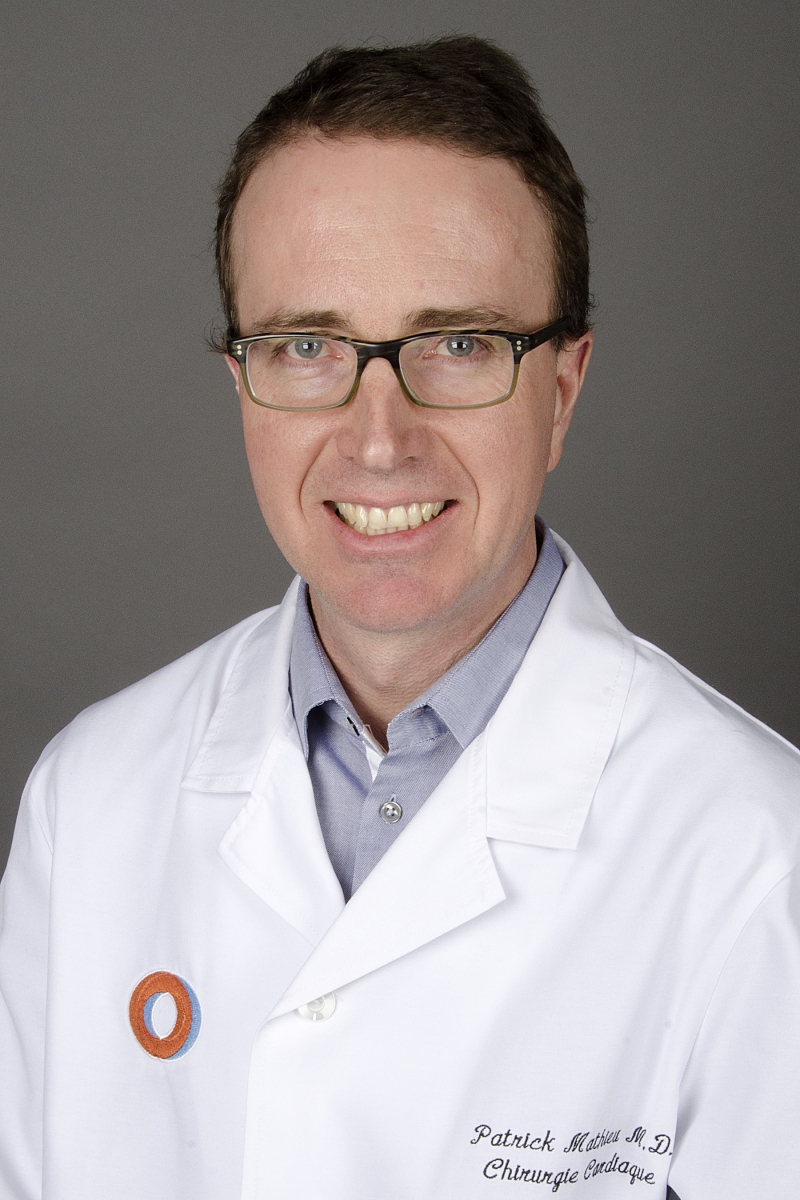 Dr. Patrick Mathieu, M.D., MSc, FRCSC
Dr. Patrick Mathieu, M.D., MSc, FRCSC
Chairholder of the FRQS Chair on the Pathobiology of Calcific Aortic Valve Disease
The calcific aortic stenosis (CAS) is the most frequent valvular disease within our societies. The mechanisms that lead to the calcification of cardiac valves remain poorly understood. On the other hand, Dr. Mathieu’s team work done over the last few years highlighted some critical process that may arise on new therapeutic perspectives. His team recently discovered that the aortic valve mineralization has been triggered by lysophospholipid derivatives as well as by a long non-coding RNA dysregulation that foster a cell genetic reprogramming. It is therefore possible to modify the genetic programming of aortic valve cells by using among other things targeted therapies on long non-coding RNA or even via the modulation of lipid mediators. The aim of this chair is to understand the molecular mechanisms of the disease in order to provide new treatments to patients. The support given to this chair is an undeniable asset which will allow Dr. Mathieu’s team remains world leaders in the molecular cause quest behind cardiac valve diseases.
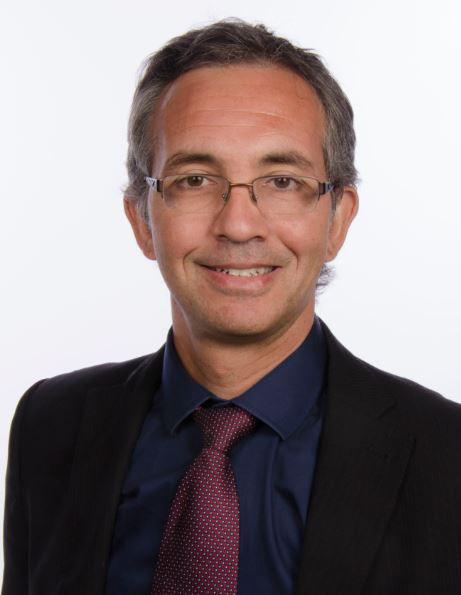 Dr. Philippe Pibarot, D.V.M.
Dr. Philippe Pibarot, D.V.M.
Chairholder of the Canada Research Chair in Valvular Heart Diseases
Assistant Director of Cardiology Research
Around 100,000 cardiac valve surgeries are performed annually in North America, and this number will likely double within 15 years. The prostheses currently available for surgery are not perfect and can cause various complications. Through his work, Dr. Pibarot aims to not only create new, better-performing prostheses, but also to develop a strategy for choosing the most appropriate prosthesis according to individual patient characteristics.
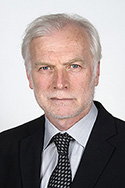 Dr. Denis Richard, Ph.D.
Dr. Denis Richard, Ph.D.
Chairholder of the Research Chair in Obesity
Director of the Quebec Heart and Lung Institute Research Centre
Director of the Laval University Interdisciplinary Research Group in Obesity
In Canada, 20% of the population is considered to be obese, and over 50% is overweight. The costs associated with obesity-related health problems are estimated at $4.3 billion. The Merck Frosst/CIHR Research Chair on Obesity focuses its efforts on two key areas: ongoing research on the neuronal and hormonal processes that control and regulate energy balance, and the sharing of state-of-the-art knowledge in obesity prevention and treatment. The Chair also plays an important educational role and organizes a prestigious international symposium each year that draws to Quebec City the top scientists working in various fields of obesity research.
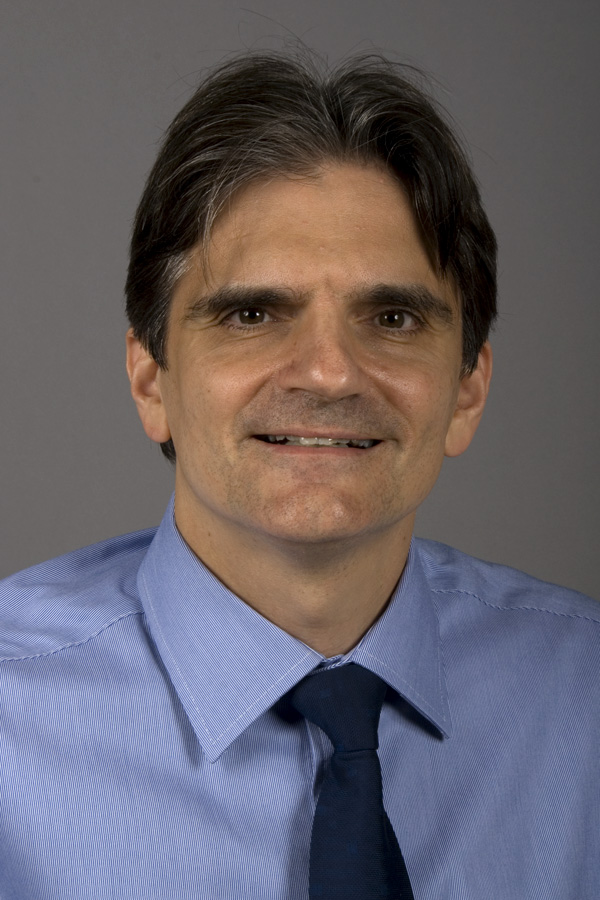 Dr. Josep Rodés-Cabau, M.D.
Dr. Josep Rodés-Cabau, M.D.
Chairholder of the Research Chair on the “Fondation Jacques Larivière” for the development of structural heart interventions
Held by Dr. Josep Rodés-Cabau, this chair was created in April 2017. It specifically targets developing and pursuing the research with respect to procedural options for invasive surgery to treat high-risk patients with structural heart diseases. In a five-year horizon, the chair wishes to develop new technologies and procedural methods that will help improve the quality of life and outcomes for these patients.
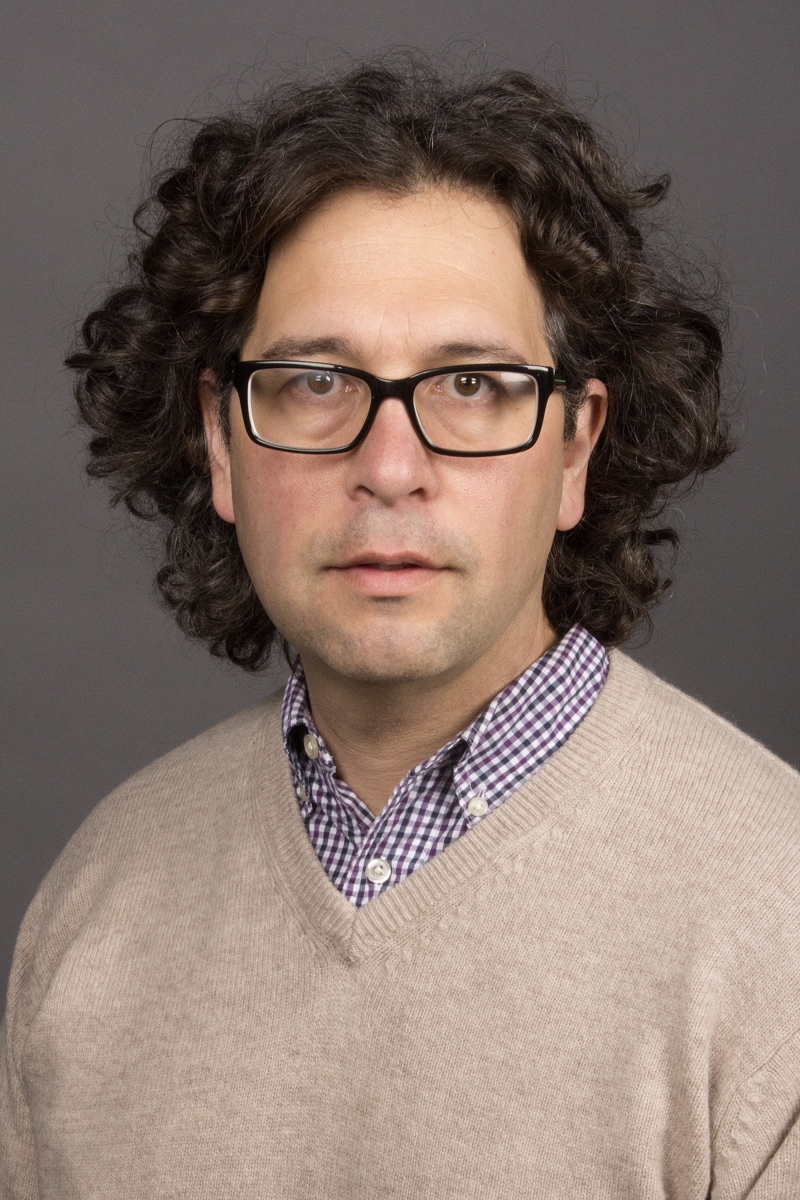 Dr. Cristoforo Silvestri, Ph.D.
Dr. Cristoforo Silvestri, Ph.D.
Chairholder of the Research Chair in partnership on the endocannabinoid system in cardiometabolic health
Created in September 2017, this chair will be held Dr. Cristoforo Silvestri. The Research Chair in partnership on the endocannabinoid system in cardiometabolic health will examine how the microbiome and the endocannabinoidome interact to regulate the energy homoeostasis as well as the metabolism. The rodent and the human intestinal microbiomes man will be evaluated.
 Dr. André Tchernof, Ph.D.
Dr. André Tchernof, Ph.D.
Chairholder of the Chair in Bariatric and Metabolic Surgery
Assistant Director of Obesity-type 2 diabetes-metabolism Research
Since the late 1970s, the prevalence of severe obesity, which is defined as a body mass index greater than 40, has increased by 233% in Canada, from 0.9% to 2.1% of the adult population. Until now, bariatric surgery is the only treatment that can actually produce a significant and sustained weight loss for people with severe obesity. This involves decreasing the size of the stomach and reorganizing the small intestine, both leading to a sensation of early satiety and a reduced absorption of ingested foods. This chair will, among other objectives, ensure optimal management of people waiting for this surgery, improve monitoring practices of operated patients and develop methods of minimally invasive therapeutic interventions for people with severe obesity.
 Dr. Angelo Tremblay, Ph.D.
Dr. Angelo Tremblay, Ph.D.
Chairholder of the Canada Research Chair in Physical Activity, Nutrition and Energy Balance
The steady increase in the percentage of obese people is one of the most pressing social concerns. Dr. Tremblay heads one of the world’s two most productive research groups in the study of obesity predisposition factors. He was the first researcher to show that the positive effect of physical exercise on energy balance was nutrition-dependent.
